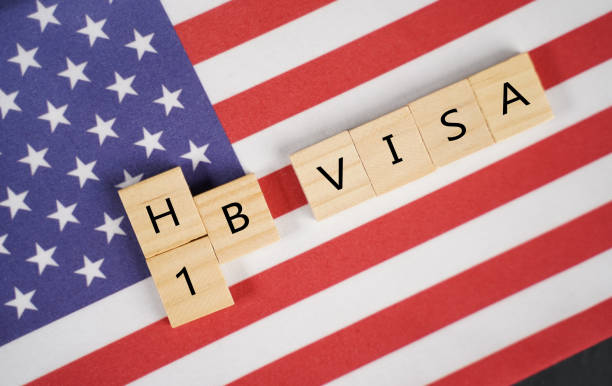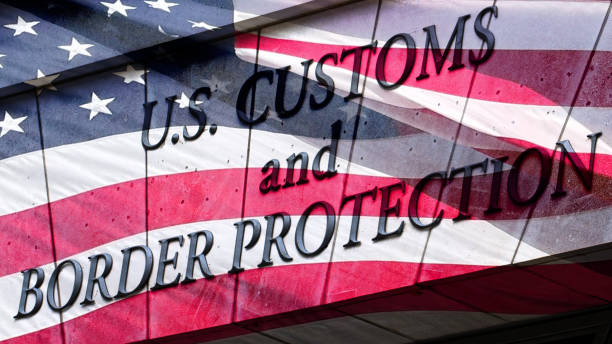Canada Immigration: Fourteen Reasons for Canada Visa Denial and How to Avoid Them
Canada is a top destination for students, workers, and tourists, offering quality education, ample job opportunities, and a high standard of living. However, many applicants find their visa applications denied due to various factors, which can be disappointing and frustrating. This article explores 14 common reasons for Canada visa denials, providing insight into the application process and practical recommendations to increase the chances of a successful application.
Fourteen (14) Reasons for Canada Visa Denial
Incomplete or Incorrect Application Forms
Missing or inaccurate information is one of the most common reasons for visa denials. Each form in the application must be filled out carefully, with no blank fields or errors. Ensure to double-check all information before submission and ensure it matches supporting documents. Consider consulting a certified immigration advisor to review your application.
Tip: Keep a checklist of required documents and forms, ticking them off as you complete each item to stay organized and thorough.
Insufficient Financial Proof
Applicants must demonstrate they have enough funds to cover their stay, whether for a study permit, work visa, or visitor visa. Insufficient or unverified proof can lead to rejection. Provide recent bank statements, proof of employment, or a letter of financial support if sponsored by someone else. Make sure all documents are current and verified by the appropriate institution.
Tip: Include detailed explanations of any large deposits or unusual financial activity to show that funds are legitimate and stable.

Criminal Record
Canada has strict policies regarding criminal records, and any criminal history, no matter how minor, can lead to inadmissibility. If you have a criminal record, apply for rehabilitation or demonstrate that you are “deemed rehabilitated” based on the time since the offense. Submit all relevant documentation to prove your current status.
Tip: Obtain a police clearance certificate from every country you’ve lived in for more than six months since turning 18.
Inadequate Travel or Work History
Visa officers assess past travel and work experience to determine an applicant’s purpose and reliability. A lack of sufficient history may raise doubts. Provide a comprehensive list of past employment and travel, including dates, locations, and durations, if applicable. This is particularly important for those applying for work permits or study visas.
Tip: Attach any awards, professional certificates, or recommendation letters to strengthen your work history.
Unclear Purpose of Visit
Vague visit intentions may suggest to visa officers that an applicant lacks a genuine reason for entry or may intend to overstay. Clearly state the purpose of your visit, including details on your itinerary, intended study program, or job offer, as applicable.
Tip: Provide a detailed itinerary if visiting or tourist visa and a study or work plan for study and work visas. Clarity adds credibility to your application.
Insufficient Ties to Home Country
Applicants with weak ties to their home country may be seen as potential overstayers. Strong connections to your home country are necessary to assure officers that you intend to return. Include documentation that proves ties such as property ownership, family responsibilities, ongoing employment, or educational commitments in your home country.
Tip: A well-drafted letter explaining your strong intention to return, supported by documents, can make a compelling case.
Failure to Meet Health Requirements
Canada requires medical exams for certain types of visas. Health issues that pose a risk to public safety or lead to excessive demand on health services may lead to inadmissibility. Complete all required medical exams with authorized practitioners. Disclose all health conditions and, if possible, provide documentation showing manageable or low-risk status.
Tip: Maintain updated medical records and be proactive in addressing any health issues before applying.
Inconsistencies in Personal Information
Conflicting personal information, such as mismatched addresses or employment details across different documents, can create red flags. Ensure that all documents and forms are consistent. Review everything meticulously and ensure that personal details match.
Tip: Keep a copy of your completed application and supporting documents for future reference to maintain consistency.
Failure to Meet Language Requirements
Some visas, especially for students and skilled workers, have language requirements. Low scores in English or French exams can lead to denial. Prepare thoroughly for required language exams (e.g., IELTS, CELPIP, TEF) and achieve the minimum score set by Immigration, Refugees and Citizenship Canada (IRCC).
Tip: Use test preparation courses or online resources to improve your language proficiency before taking the official test
Lack of Supporting Documentation
Missing or insufficient documentation (e.g., transcripts, job letters, proof of relationship) can undermine the application. Submit a complete set of documents based on the visa type. Check IRCC’s website for specific document requirements and submit all requested items.
Tip: Keep all important records organized, and if possible, have backup copies for critical documents.
Overstayed Visa or Illegal Status in Another Country
Previous visa violations or illegal status in other countries can lead to Canadian visa denial due to concerns about the applicant’s compliance. Be honest about your history in other countries. If you overstayed or violated terms, provide a letter explaining the circumstances and demonstrate reformed behavior.
Tip: Attach proof of legal status and compliance from countries where you’ve resided previously, if available.
Misrepresentation or False Information
Providing false information or using fake documents can result in a denial and even a ban from applying to Canada. Always be truthful and transparent in your application. Submit genuine documents and avoid exaggeration or dishonesty.
Tip: Remember that even minor inaccuracies can lead to a ban, so ensure every detail is truthful and verifiable.
Ineligibility Based on Application Type
Applying for the wrong visa type or misunderstanding eligibility criteria can lead to a swift denial. Thoroughly research each visa type and confirm that your profile matches its requirements. Consulting an immigration expert can be helpful.
Tip: If you are unsure of which visa is best for your intentions, consider contacting a certified immigration consultant for guidance.
Poor Interview Performance (for Certain Visas)
Some visas require an interview. A lack of preparation or poor performance during the interview can negatively impact the decision. Practice answering questions that may be asked during the interview. Show confidence, clarity, and a clear understanding of your intentions in Canada.
Tip: Research common visa interview questions and rehearse with a friend or family member.

Recommendations and Tips for Success in Securing a Canadian Visa
Applying for a Canadian visa can be challenging, but careful preparation and attention to detail can significantly increase the chances of approval. Below are comprehensive recommendations and tips to help applicants avoid common pitfalls and present a strong application.
Research the Visa Type and Requirements Thoroughly
Know Your Visa Type: Canada offers a range of visa options, each with its specific requirements. Whether applying for a study permit, work visa, or visitor visa, it’s crucial to understand the particular documentation, eligibility, and purpose for each type.
Use Official Resources: Rely on trusted sources like the Immigration, Refugees and Citizenship Canada (IRCC) website, which provides current information on visa requirements. Avoid relying solely on third-party websites that may have outdated or incomplete information.
Consult an Expert: If you’re uncertain about which visa category applies to you, a certified immigration consultant can help identify the best option based on your goals.
Complete Application Forms Carefully and Accurately
Avoid Leaving Blank Fields: Incomplete forms are a common reason for visa denial. Be diligent in completing every section of each form, even if a field may not seem necessary.
Consistent Details Across Documents: Ensure details such as names, addresses, and dates are consistent across all documents and forms. Any inconsistencies may raise concerns.
Proofread Multiple Times: Small errors can jeopardize your application. Check forms for typographical or factual errors multiple times before submission, and consider having a trusted person review it as well.
Provide Strong Financial Proof
Showcase Sufficient and Accessible Funds: Demonstrating financial stability is vital, especially for student and visitor visas. Include bank statements, income proof, and any sponsorship letters if a family member or organization is providing support.
Use Recent Financial Statements: Provide the most recent statements (typically within the last 6 months) to show current access to funds. Outdated financial documents may not be accepted.
Clarify Large Deposits: If there are recent large deposits, provide a statement or additional documentation explaining the source, as unexplained transactions may lead to suspicion of inaccurate or insufficient funds.
Demonstrate Strong Ties to Your Home Country
Highlight Family and Work Connections: Submit evidence of ongoing employment, family obligations, or other ties that show a strong incentive to return after your stay.
Show Property Ownership or Leases: If applicable, provide property ownership documents, leases, or rental agreements. Real estate ownership can be a strong indicator of your intent to return to your home country.
Obtain Supporting Letters: Consider adding letters from your employer, school, or other significant connections explaining the importance of your return. These additional statements can reinforce your intent to return after your Canadian visit.

Prepare for Medical and Background Checks
Complete Medical Exams as Required: Certain visa types require a medical examination to ensure that applicants do not pose a health risk. Schedule these exams early to avoid delays in your application processing.
Obtain Police Clearance Certificates: If you’ve lived in other countries, you may need police clearance certificates from each place of residence since turning 18. Submit current, translated versions if necessary.
Disclose All Relevant Information: Transparency about your health and criminal history is essential. Attempting to hide information will likely result in visa denial and a possible ban on reapplying.
Present a Clear Purpose of Visit
Provide a Detailed Itinerary: For visitor visas, outline your daily or weekly plans to give visa officers a clear sense of your intentions. This could include accommodation details, planned tours, or appointments.
Attach Invitation Letters if Visiting Family: A letter of invitation from family or friends, detailing their relationship to you, can support your case and add clarity to the purpose of your visit.
Highlight Professional or Educational Plans: For study or work visas, be detailed about your program or job role and any future opportunities this will create. Clearly stating your career path or academic objectives shows purpose and reliability.
Prepare a Strong Set of Supporting Documents
Organize All Documents in Order: Arrange all forms and supporting documents in a logical order (e.g., by application form, identification, finances, etc.). This helps the visa officer easily assess your application.
Translate Documents if Needed: If any documents are in a language other than English or French, they must be translated by a certified translator. Ensure that translated documents are attached to the originals.
Double-Check Document Validity: Some documents, like police certificates or medical exams, may only be valid for a limited period. Verify that all documents are current before submission.
Prepare for Visa Interviews (If Applicable)
Practice Common Interview Questions: Prepare for questions related to your application, background, and purpose of visit. Answer clearly, confidently, and concisely.
Showcase Strong Intent to Return: During the interview, emphasize your ties to your home country and your return plans. Avoid discussing intentions to remain permanently unless applying for a permanent residency visa.
Be Prepared to Explain Any Gaps: If there are gaps in your employment or education history, be prepared to explain them transparently. Gaps may raise questions, but explaining them honestly can alleviate concerns.
Avoid Misrepresentation and Be Honest
Submit Genuine Documents: Misrepresentation can lead to an immediate ban from reapplying. Use only verified, authentic documents and avoid exaggeration.
Provide Explanations for Any Discrepancies: If there are legitimate changes in your information, like a recent change in employment, include an explanatory letter. Honesty and transparency are vital.
Seek Legal Advice if Unsure: If you feel uncertain about any documentation or statement, it’s worth consulting with an immigration lawyer or advisor to ensure compliance and avoid unintended misrepresentation.
Reapply Strategically if Denied
Review the Refusal Letter: The visa officer’s refusal letter outlines the reasons for denial. Understand these reasons and address each one before reapplying.
Enhance Weak Points: Take the opportunity to improve any weak aspects of your application, such as providing more robust financial proof or additional documentation.
Consider a Professional Review: If your application has been denied previously, seeking help from an experienced immigration consultant may help identify overlooked issues and enhance your next application.
FAQ: Common Questions about Canadian Visa Applications and Denials
Q: Can I reapply immediately after a visa refusal?
A: Yes, you can reapply as soon as you’re ready, but it’s best to address the specific reasons for denial before resubmitting.
Q: What documents prove ties to my home country?
A: Strong ties include property ownership, ongoing employment, business, or family responsibilities, which you can document through official records and employer or family letters.
Q: Can minor errors in the application lead to a ban?
A: Minor errors generally lead to denial, but misrepresentation or providing false documents can result in a multi-year ban from applying.
Q: Should I disclose a past visa overstay in another country?
A: Yes, full disclosure is essential. Explain the circumstances in a written statement to demonstrate honesty and current compliance with all regulations.
Q: Is it mandatory to have a job or university acceptance before applying for certain visas?
A: Yes, certain visas, like work and study permits, require an employment offer or university acceptance to demonstrate a legitimate reason for visiting Canada.


